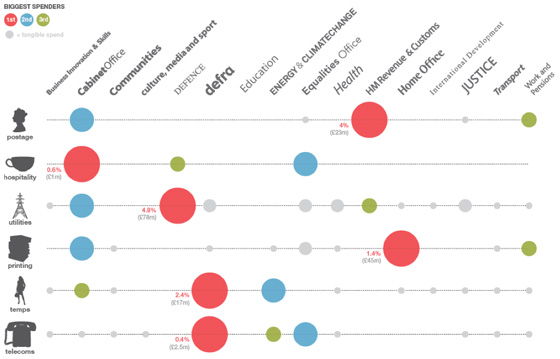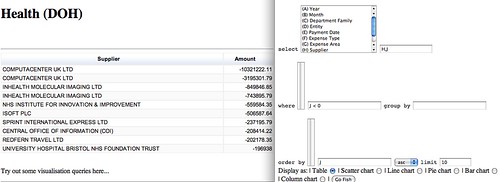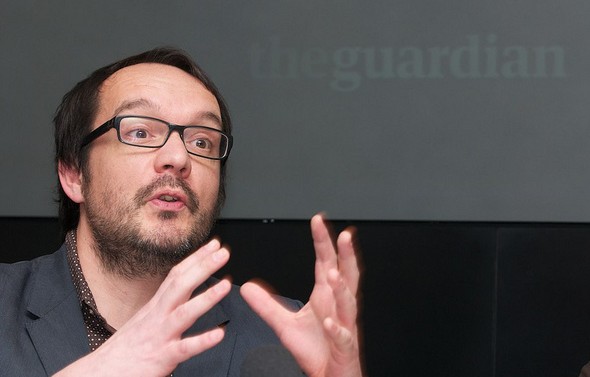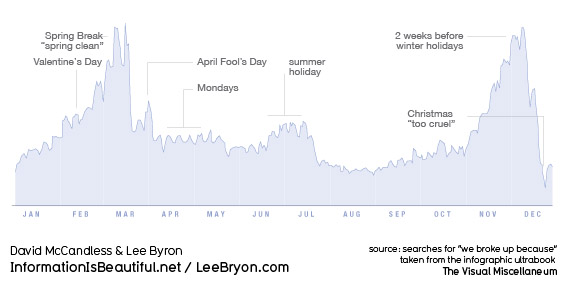 Journalisted is an independent, not-for-profit website built to make it easier for you, the public, to find out more about journalists and what they write about. It is run by the Media Standards Trust, a registered charity set up to foster high standards in news on behalf of the public, and funded by donations from charitable foundations.
Journalisted is an independent, not-for-profit website built to make it easier for you, the public, to find out more about journalists and what they write about. It is run by the Media Standards Trust, a registered charity set up to foster high standards in news on behalf of the public, and funded by donations from charitable foundations.
Each week Journalisted produces a summary of the most covered news stories, most active journalists and those topics falling off the news agenda, using its database of UK journalists and news sources. From now on we’ll be cross-posting them on Journalism.co.uk.
For the week ending Sunday 7 November
- The Republicans, who made a strong comeback against Obama in the US mid-terms, were covered lots
- Gareth Bale’s performance against Internazionale attracted many admiring pieces
- Though there was little coverage of the mass grave uncovered in Mexico, or of the record ransom claimed by Somali pirates
- The Media Standards Trust’s latest report ‘Shrinking World: The decline of international reporting in the British press’ is now available to download
For the latest instalment of Tobias Grubbe, journalisted’s 18th century jobbing journalist, go to journalisted.com/tobias-grubbe
Covered lots
- Republicans, who won enough seats in the US mid-terms to take control of the House of Representatives, 340 articles (with the insurgent ‘Tea Party’ generating 261 articles)
- Gareth Bale, the architect of Tottenham Hotspur’s victory over Internazionale, 189 articles
- University fees, rising to £9,000 by 2012 after proposed Coalitian cuts, 122 articles
Covered little
- Somali pirates, having received a record ransom of £7.6 million for South Korean oil tanker and a Singaporean ship, 12 articles
- A vision chip, which has restored sight to a blind man following tests in Germany, 10 articles
- A mass grave uncovered near Acapulco in Mexico, alleged to be a revenge killing between two drug cartel families, 8 articles
Political ups and downs (top ten by number of articles)
David Cameron: 480 articles (-27% on previous week)
George Osborne: 130 articles (-70% on previous week)
Theresa May: 130 articles (+160% on previous week)
Nick Clegg : 118 articles (-20% on previous week)
Vince Cable : 113 articles (+110% on previous week)
Gordon Brown : 100 articles (+19% on previous week)
Tony Blair : 83 articles (+4% on previous week)
Ed Miliband : 75 articles (+19% on previous week)
William Hague : 56 articles (-42% on previous week)
Michael Gove: 53 articles (-15% on previous week)
Celebrity vs serious
Stephen Fry’s remark on women not liking sex, 36 articles vs.Christians threatened in Iraq, after a bomb attack on a Baghdad church killed 58 people and injured 67, 25 articles
Lady Gaga, winning 3 MTV Europe Awards on Sunday, 63 articles vs. Indonesia’s erupting Mount Merapi, killing 130 people and forcing 200,000 to flee their homes, 50 articles
Cheryl Cole, presenter of the X-Factor whose album – Messy little raindrops – went straight to number one, 95 articles vs. Burma’s first general election in two decades, 49 articles
Who wrote a lot about…’India and the US’
James Lamont – 10 articles (Financial Times); James Fontanella-Khan – 6 articles (Financial Times); Jason Burke – 5 articles (The Guardian); Edward Luce – 5 articles (Financial Times)
Long form journalism
4,005 words: ‘Does torture work?’, John Lloyd, Financial Times, 5th November 2010
3,405 words: ‘The Knox watchers: Meet the people who are obsessed with Amanda Knox’s fate’, Peter Popham, The Independent, 6th November 2010
3,255 words: ‘Latin lessons: What can we learn from the world’s most ambitious literacy campaign?’, Nina Lakhani, The Independent, 7th November 2010




